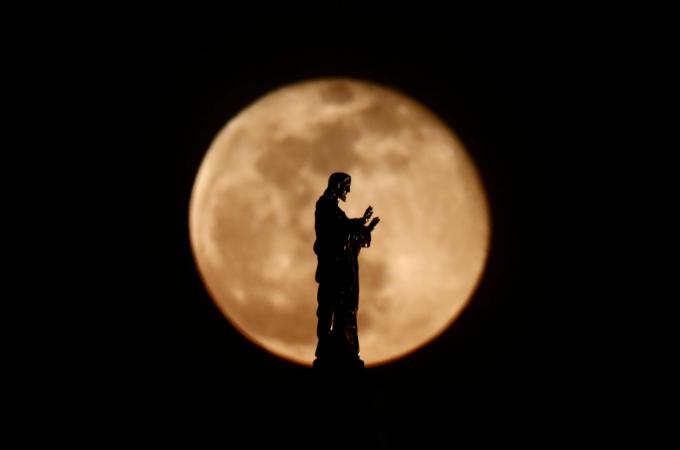Shooting for the moon
On July 20, 2019, our nation celebrated the 50th anniversary of the Apollo moon landing. As the world took a moment to reflect on what occurred on that day and on what it took to make this historic event happen -- the bravery of the astronauts, the vision, the will, and the collective intellect of the scientists and engineers -- we are reminded of how far our technology has advanced and what is possible in the future.
According to Andrew Orr of the website Mac Observer, "iPhones have over 100,000 times more processing power than the Apollo 11 computer." It is astounding to think that in my pocket right now, I have 100,000 times the computing power needed to get to the moon. However, it is equally humbling to remember that power means nothing if you don't have vision or the knowledge to get where you are going and if you never look up to appreciate the journey. The Apollo 11 scientists had a fraction of the computer power we have access to today, but they never stopped looking up, envisioning the possibilities before them -- and literally shooting for the moon.
Over the last 10 years, hundreds of millions of people have slipped powerful computing devices into their pockets, most not understanding the true possibility of what they possess. Instead, they use the power for such inconsequential feats as securing a high score on Candy Crush or Flappy Bird or conquering Fortnite -- replacing imagination and vision for the mindless pressing of a screen.
In contrast, the Catholic Church recognizes the beauty and power of science as one of God's great gifts to mankind. Scientific pursuit as a hallmark of the Catholic Church and Catholic education often gets forgotten. Yet, it was Jesuit priest Georges Lemaitre, who proposed what would later be known as the Big Bang Theory and Augustinian Friar Gregor Mendel who is considered the father of modern genetics. The role of the Church in funding scientific discovery is unmatched and continues today through Catholic universities and Church-sponsored research at places such as the Vatican Observatory.
Catholic schools in the Archdiocese of Boston continue this great tradition of scientific pursuit through a partnership with the Museum of Science's Engineering is Elementary program. The partnership started with a handful of donors from the Catholic Schools Foundation (CSF) who helped fund a pilot engineering program for third grade classrooms in 13 CSF-supported schools. Engineering is Elementary recently expanded to include Kindergarten through fifth grade classrooms in 15 schools, with the support of the Lynch Foundation. Last year alone over 1,200 students had access to top-notch engineering and STEM curriculum and learning experiences.
The Museum of Science is an extraordinary resource that provides students with rigorously researched, classroom-tested curriculum that increases students' understanding and confidence in engineering. By teaching and applying math and science through the lens of engineering, this program is creating a generation of creative problem solvers while advancing their math and science skills.
Engineering is Elementary is one of many examples of students in Catholic schools receiving excellent teaching and programs for the best possible academic outcomes. Students in Catholic schools deserve high-quality programs, but this is not enough. Students must understand how science and technology are a reflection of the goodness of God.
All of the learning in Catholic schools is done in the context of the Gospel: science and technology are no exception. Students are taught that they are made, known and loved by God. They learn that their gifts and abilities are gifts from God and they have the responsibility to share their gifts with others. They learn that technology can be an amazing tool for good, but it is not an end to itself. Technology should not just be for escaping the world to play games or create virtual networks and personas. Rather, technology should be used to engage the world, help shape society for the greater good and bring us closer to God. St. John Paul II reminded us of this in an address to the members of the Pontifical Academy of Sciences in November 2000, when he said, "Scientific research constitutes for many, the way for the personal encounter with truth, and perhaps the privileged place for the encounter itself with God, the Creator of heaven and earth."
Programs like Engineering is Elementary in our Boston-area Catholic schools offer opportunities for students to encounter God while being exposed to rigorous and engaging math and science content, creating the next generation of those who will care for God's creations and, like the scientists and astronauts of Apollo 11, shoot for the moon.
- Michael B. Reardon is executive director of the Catholic Schools Foundation, www.CSFBoston.org.



















